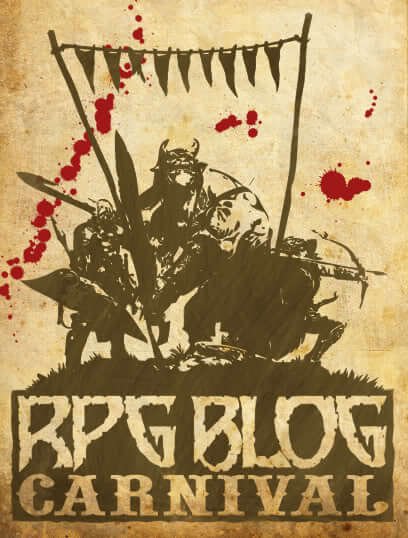Magic Shops and Their Alternatives: June 2025 Blog Carnival
Magic shops, that staple of high fantasy campaigns, can be controversial in the hobby. On the one hand, in all but the most magi-tech of settings, magic shops do not seem economical: they sell large volumes of expensive and supposedly rare items to a populace that cannot afford any of them and has no use for most of them. If that wasn't enough, some systems are not balanced with magic items in mind, so making them abundantly available to player characters can exacerbate a problem that is already bad enough. On the other hand, adventurers need a place to spend their ample gold and, furthermore, magic shops allow players to choose their own magic items within limits and tinker with their characters' builds outside of strict class progression. Magic shops can also provide a pretext for a series of social encounters, because you can be fairly sure your players will come back to them again and again. So what are we to do?
This is the subject I hope you'll join me in discussing in the next few weeks, as I am honoured and grateful to host the 2025 RPG Carnival for the month of June. I'm interested in anything to do with magic shops: their inventories and their premises, their proprietors and their patrons, their uses and their absences.

Of course, a magic shop doesn't need to be a magic shop. Some GMs use magic item brokers, who with time and gold can source a magic item you request or find a buyer for one you want to unload. Other GMs might use an itinerant magic item vendor, who has a way of appearing near the party at convenient moments. In my contribution to this carnival, I consider using a magic item market, the only one in the world.
And a magic shop doesn't need to be a magic shop. Your campaign setting may not have magic, exactly, or magic may be too rare for it to simply be sold in shops. But you may have an alchemist's shop, or a cybernetics shop, or a black market alien tech shop; these are more or less the magic shops of different settings and genres.
Other GMs, of course, do not use magic shops or their alternatives at all. If players want a particular item, they must make it themselves. Failing that, they can do research, chase down some rumours, and hope to find what they want in a dragon's hoard or a lost kingdom's armoury.
If you have thoughts about, plans for, or experiences with magic shops in TTRPGs, then I hereby solicit from you a post answering any of the following questions:
- How do you use magic shops (or cybernetics shops, etc) in your campaign, assuming you do? To what uses do you put them, other than lightening your party's purses? How do you choose their inventories? What is their role in your game? Which was your favourite proprietor? What are you still struggling with?
- How do you justify magic shops in your campaign, assuming you do? How can they afford to sell their wares? How do they source their wares? What is their role in the setting?
- Or, if you use an alternative to magic shops in your campaign, what are those alternatives? Why do you use them? How well have they worked for you? What differences do they introduce in your game? Do your players like them? Is there anything you haven't worked out yet?
- Or, if you use neither magic shops nor their alternatives, why not? What opportunities has this opened up in your game? What difficulties has it caused?
- Or, is there any of the above that you haven't done that you'd like to do?
- Or if you've never been a GM, how do you feel magic shops have worked in games you've played? What do you want out of a shopping session, and what can you do to make shopping sessions work for you and for your fellow players?
If you'd like to participate, the process is simple: write a post about magic shops or their alternatives that links back to this post, publish it to your blog, and tell me about it at cerhendriks [at] proton [dot] me. Check back here at the end of the month, because I'll publish a post linking to all the posts that have been sent to me.
Happy writing!

The Alchymist, in Search of the Philosopher's Stone, Discovers Phosphorus, and prays for the successful Conclusion of his operation, as was the custom of the Ancient Chymical Astrologers, Joseph Wright of Derby, 1771, cropped